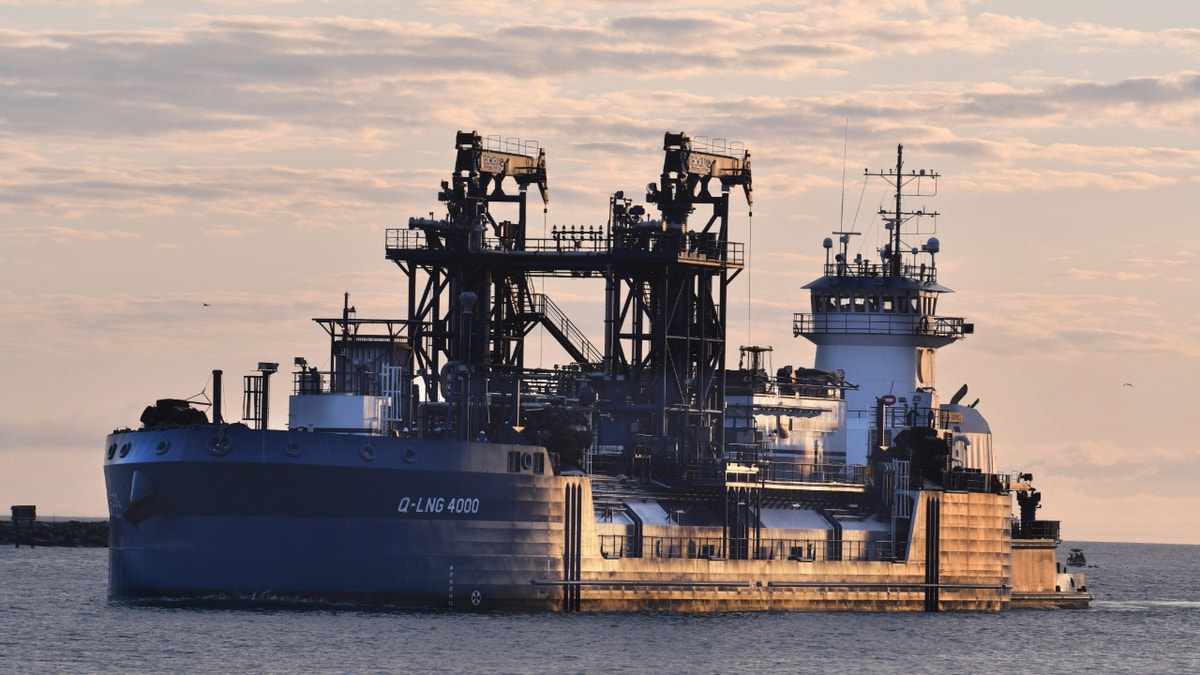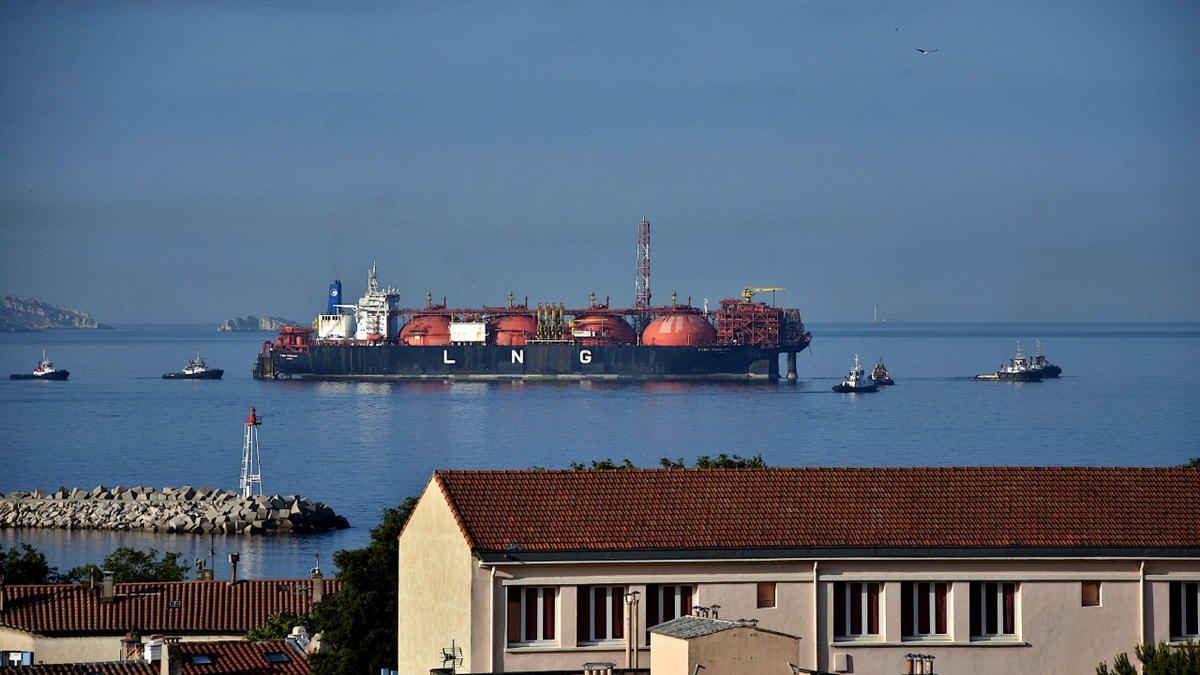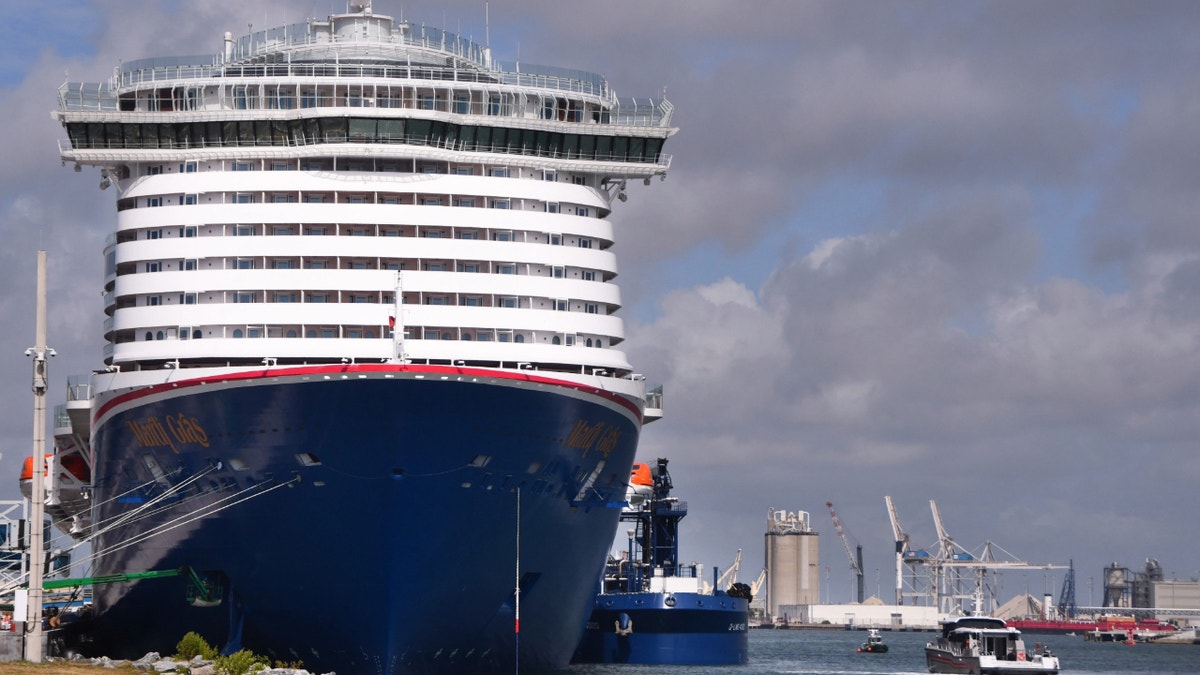A recent draft report from the Biden administration has ignited a heated debate about the future of U.S. liquefied natural gas (LNG) exports. The report cautions that lifting the current moratorium on LNG exports could increase U.S. energy prices by up to 30% and contribute to higher carbon emissions. This has drawn criticism from energy industry leaders who argue the report is politically motivated, while environmental groups find it insufficient.
The report comes as President-elect Donald Trump prepares to take office, having pledged to reverse President Biden's moratorium on new LNG exports to non-Free Trade Agreement countries. Biden instituted the pause to assess the climate and economic impacts of growing LNG sales to Asia and Europe. The draft report, currently in a 60-day public comment period, suggests that increased LNG exports could raise energy costs for U.S. consumers by approximately $100 by 2050 due to tighter domestic supply.

An LNG tanker is seen in Port Canaveral, Florida. (Malcom Denemark/Florida Today)
The report also highlights the potential environmental impact, estimating a potential increase of 1.5 gigatons of CO2 equivalent emissions by 2050. However, industry experts contend that this analysis fails to account for LNG's role in replacing dirtier fuels like coal, which the International Energy Agency estimates could reduce emissions by 50-60%. While the report acknowledges a potential 0.2% rise in U.S. GDP from increased exports, it questions whether this translates to overall public benefit.

Accompanied by tugboats, the LNG tanker "Hellas Diana" transports a cargo of LNG to the "Deutsche Ostsee" energy terminal. (Stefan Sauer/dpa/Sipa USA)
Energy Secretary Jennifer Granholm acknowledges the potential economic benefits of increased LNG exports, such as job creation and profits for export facility owners, but cautions about rising domestic natural gas prices. This comes as the U.S. has become the world's leading LNG exporter, with capacity expected to double by the end of the decade. Russia's war in Ukraine has further intensified demand from European allies and import-dependent nations like Japan seeking alternatives to Russian gas.

The Q-LNG4000, Port Canaveral's liquified natural gas tanker, fueling up the Carnival Mardis Gras at the port. (Malcom Denemark/Florida Today)
Industry groups like the National Association of Manufacturers (NAM) have strongly criticized the report, arguing that LNG exports are crucial for providing cleaner energy alternatives and reducing global emissions. NAM's own research suggests that maintaining the LNG export pause could jeopardize nearly 1 million jobs over the next two decades. The American Gas Association echoes this sentiment, calling the report an attempt to justify a flawed policy that harms both U.S. allies and the energy market. Conversely, environmental organizations like Food & Water Watch criticize the report's weakness and urge President Biden to ban further LNG exports and reject pending permits.
President-elect Trump has consistently vowed to lift the LNG pause and boost U.S. energy exports, attributing high energy costs to the Biden administration. He has promised to cut energy prices significantly within his first year in office and plans to prioritize lifting the LNG export restrictions immediately upon his inauguration.
Comments(0)
Top Comments